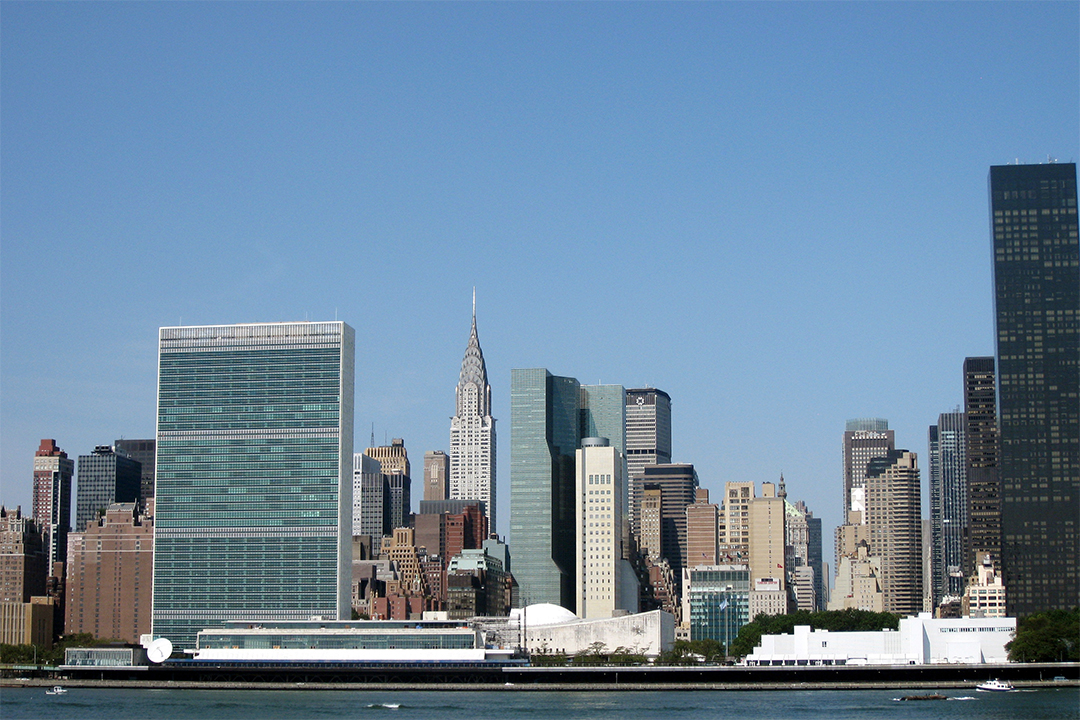23 July 2018: The UN General Assembly (UNGA) has adopted a resolution on strengthening the UN Economic and Social Council (ECOSOC). Among other changes laid out in the text are a restructuring of segments and forums, and a call to improve the Voluntary National Reviews on SDG implementation.
The text was negotiated through consultations led by Qatar and Iceland on the review of UNGA resolution 68/1. On 10 July, UN General Assembly (UNGA) President Miroslav Lajcak announced that no UN Member State had broken the silence procedure related to the final draft of the resolution circulated on 6 July.
On ECOSOC’s overall role, the text calls on ECOSOC to strengthen its leadership and policy guidance role, and promote a coordinated follow-up to the 2030 Agenda. It says the Council should: be a platform for discussion and exchange of national experiences; aim “at creating synergy and coherence as well as avoiding duplication and overlap in its work”; and ensure that the “principles, critical aspects and implementation gaps of the 2030 Agenda” are addressed.
On themes, the resolution mandates the UNGA to adopt one main theme for the High-level Political Forum on Sustainable Development (HLPF) and ECOSOC. For the segments and subsidiary bodies, the themes should focus on a particular aspect of the main theme, bearing in mind their respective functions.
On the annual cycle, the agreement sets out a restructuring of the current segments and fora into three groups. The first group, on ECOSOC forums, will include the Development Cooperation Forum (DCF) every second year, and on an annual basis: the forum on financing for development follow-up (FFD Forum), the multi-stakeholder forum on science, technology and innovation for the SDGs (STI Forum), the partnership forum, and the youth forum.
The second group, made up of segments that address actions by the UN development system and other actors to implement the 2030 Agenda, along with “distinct humanitarian assistance,” includes the operational activities segment (OAS), the humanitarian affairs segment and the special event to discuss the transition from relief to development. Further on the OAS, the text says it should serve as a platform to ensure accountability and acceleration with regard to the 2030 Agenda and provide guidance for the UN development system, including support for the quadrennial comprehensive policy review (QCPR).
The third group includes segments and forums that provide overall policy guidance and foster progress in the implementation of the 2030 Agenda, contribute to the overall review of the 2030 Agenda at the HLPF and look to the future of the advancement of sustainable development. This group consists of the one-day integration segment, followed immediately by the HLPF and ECOSOC’s high-level segment. On the integration segment, it will “consolidate all the inputs of Member States, including case studies and lessons learned, the subsidiary bodies of ECOSOC, the UN system and other relevant stakeholders to promote the balanced integration of the three dimensions of sustainable development” in order to bring together key messages on the main theme, along with action-oriented recommendations to feed into the HLPF. Regarding the HLPF, the ECOSOC Bureau will consider ways of optimizing the time for countries to present their voluntary national reviews (VNRs) in order to improve the exchange of experiences on implementing the SDGs. Following the HLPF’s ministerial segment, the final day of the ECOSOC High-level Segment will focus on future trends and scenarios related to the ECOSOC main theme, and the long-term impact of current trends on the realization of the SDGs. The outcome of the HLPF and the high-level segment will continue to be a negotiated ministerial declaration.
Finally, the resolution reaffirms the role of the UN Department of Economic and Social Affairs (DESA), and looks forward to an update by the Secretary-General on DESA’s alignment with the 2030 Agenda, “in accordance with resolution 70/299.”
The UNGA adopted the text by consensus in a plenary meeting on 23 July 2018. However, some governments expressed regret regarding the level of ambition contained in the resolution. Austria for the EU referred to Member States’ “collective inability to meaningfully strengthen” ECOSOC, said the integration segment should be eliminated because the HLPF has been created, and noted an “artificial duality” between the HLPF and the ECOSOC high-level segment. Supported by Australia also for Canada and New Zealand, he expressed concern about the absence of language on the Peacebuilding Commission. CANZ also stressed the need to reform DESA. Russia said NGOs’ participation should be governed by the applicable rules and regulations so as not to impede ECOSOC’s intergovernmental nature.
The arrangements set out in the resolution will be reviewed at the 74th UNGA session and subsequently during the review cycles for the HLPF. [Meeting summary] [Draft resolution A/72/L.64] [SDG Knowledge Hub story on informal agreement on text]
